Ages
Introduction
In mathematics, the concept of ages is often used in word problems and real-life scenarios to practice skills such as addition, subtraction, multiplication, and division. Age problems typically involve finding the current age of a person, predicting future ages, or determining the age difference between two individuals.Basic Concepts
When solving age problems, it's important to understand some basic concepts:- Current Age: This refers to the age of a person at the present time.
- Future Age: This is the age of a person at a specified time in the future.
- Age Difference: The age difference between two individuals is the numerical gap between their ages.
Common Types of Age Problems
Age problems can be categorized into several common types:- Single Person Age Problems: These problems involve finding the current age of a person, given certain information about their past or future ages.
- Comparison Age Problems: In these problems, the ages of two or more individuals are compared, and questions are asked about their relative ages.
- Combined Age Problems: These problems involve finding the total age when the ages of two or more individuals are combined.
Strategies for Solving Age Problems
When solving age problems, it's helpful to use a systematic approach:- Define Variables: Assign variables to unknown quantities, such as the current age of a person or the number of years in the future.
- Translate the Information: Use the given information to write equations or inequalities that represent the relationships between the ages of the individuals involved.
- Solve the Equations: Use algebraic techniques to solve the equations and find the unknown ages or age differences.
- Check the Solution: Verify the solution by ensuring that it satisfies all the conditions stated in the problem.
Study Guide
To master the concept of ages, follow these study tips:- Practice Regularly: Solve age problems regularly to build proficiency in applying mathematical operations to age-related scenarios.
- Understand the Relationships: Pay attention to the relationships between ages in different scenarios and learn to express them in mathematical terms.
- Review Essential Skills: Ensure that you have a strong foundation in basic arithmetic operations, as these skills are crucial for solving age problems.
- Seek Help When Needed: Don't hesitate to seek help from teachers, tutors, or online resources if you encounter challenges in understanding age problems.
◂Math Worksheets and Study Guides Fourth Grade. Money
Study Guide Money
Money  Activity Lesson
Activity Lesson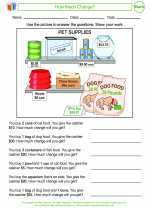 How Much Change?
How Much Change?  Activity Lesson
Activity Lesson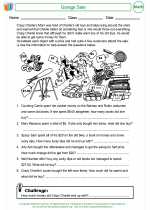 Garage Sale
Garage Sale  Activity Lesson
Activity Lesson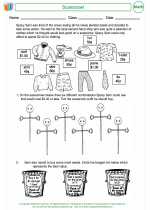 Scarecrow!
Scarecrow!  Worksheet/Answer key
Worksheet/Answer key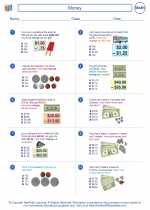 Money
Money  Worksheet/Answer key
Worksheet/Answer key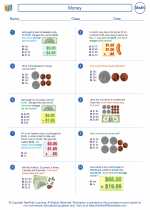 Money
Money  Worksheet/Answer key
Worksheet/Answer key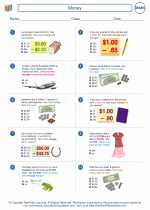 Money
Money  Worksheet/Answer key
Worksheet/Answer key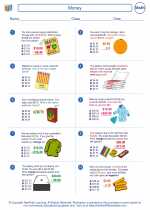 Money
Money  Worksheet/Answer key
Worksheet/Answer key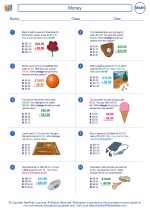 Money
Money  Worksheet/Answer key
Worksheet/Answer key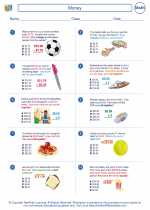 Money
Money  Worksheet/Answer key
Worksheet/Answer key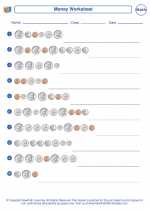 Money
Money 

 Activity Lesson
Activity Lesson
 Activity Lesson
Activity Lesson
 Activity Lesson
Activity Lesson
 Worksheet/Answer key
Worksheet/Answer key
 Worksheet/Answer key
Worksheet/Answer key
 Worksheet/Answer key
Worksheet/Answer key
 Worksheet/Answer key
Worksheet/Answer key
 Worksheet/Answer key
Worksheet/Answer key
 Worksheet/Answer key
Worksheet/Answer key
 Worksheet/Answer key
Worksheet/Answer key

Create And Print more Money worksheets with Money Skills Worksheets generator
The resources above cover the following skills:
Algebra (NCTM)
Use mathematical models to represent and understand quantitative relationships.
Model problem situations with objects and use representations such as graphs, tables, and equations to draw conclusions.